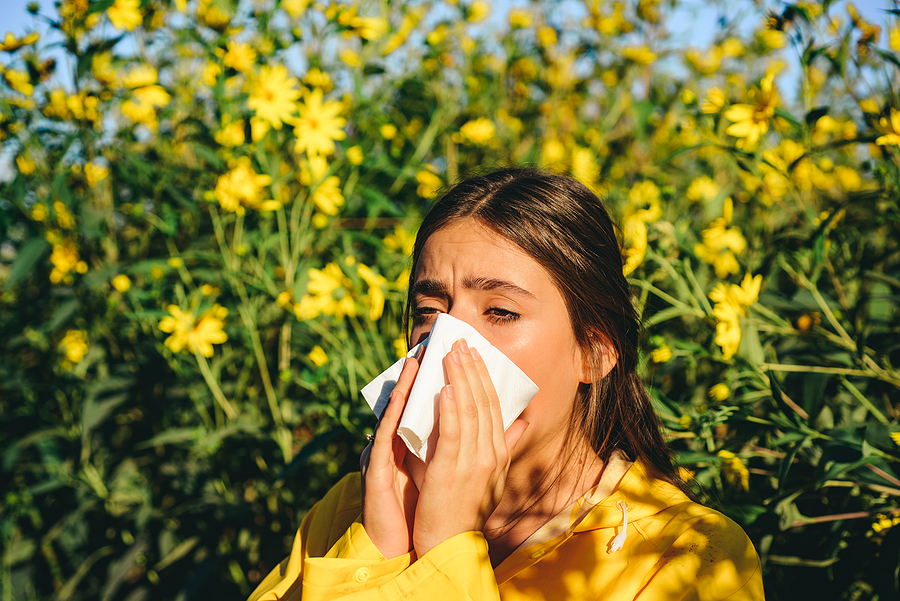
If you are one of the 100 million people in the United States who suffer from allergies, you are probably familiar with symptoms that vary depending on the time of year. It’s no surprise that where you live plays a role in the severity of symptoms, and Richmond, VA is known for being a hotspot for allergy sufferers as many seek relief from an allergy doctor.
Let’s discuss what makes this particular area so challenging for those with allergies and how you can prepare for peak allergy season.
What Are Seasonal Allergies?
Allergies occur when the immune system reacts to a foreign substance—such as dust, mold, pollen, or pet dander—that usually doesn't cause a reaction in most people.
Seasonal allergic rhinitis, sometimes called “hay fever”, occurs when you have an allergic reaction to pollen from trees, grass, and ragweed. When inhaled or touched, the body's immune system mistakenly identifies these harmless particles as a foreign substance, leading to an allergic reaction. As these allergens are more prevalent during specific times of the year, it’s common for them to be referred to as “seasonal.”
This is where allergy testing and consultation with an allergist in Richmond can be beneficial to identify triggers and manage your symptoms.
When Does Allergy Season Peak?
Richmond's allergy season is particularly robust due to its location and climate. For many, allergy season begins in early spring and can last through fall. Tree pollen, one of the primary allergens, starts affecting air quality as early as February, followed by grass pollen in late spring and summer, and ragweed pollen in the fall. These extended periods of high pollen levels are why many residents seek the expertise of an allergist.
Why are Allergies Bad in Richmond?
The Asthma and Allergy Foundation of America’s (AAFA) 2024 Allergy Capitals report finds that of the top 100 U.S. cities, Richmond ranks consistently in the top 10, as the seventh hardest place to live with seasonal allergies, up from 23rd in last year’s report. The report considered factors like trees, grass, and weed pollen scores as well as over-the-counter allergy medicine use and availability to fellowship-trained allergists/immunologists.
Common Allergy Symptoms
Recognizing allergy symptoms is important for timely intervention. Some common signs of allergies include:
- Red or watery eyes
- Itchy nose, eyes, or ears
- Sore or scratchy throat
- Head congestion
- Sneezing or stuffy nose
- Post nasal drip or cough
The Importance of Allergy Testing
Allergy testing, conducted by a qualified allergist in Richmond, VA, helps identify specific allergens that affect you. Skin testing for environmental allergens can pinpoint your allergy triggers, allowing us to create personalized treatment plans tailored to your needs so you can manage allergies effectively.
During your first visit allergy testing typically consists of four parts: a consultation, physical examination, skin testing, and results review. The length of the appointment will depend on your history and the time required to explain results and plan of action.
Preparing for Allergy Season
While you can't entirely escape allergens in Richmond, there are steps you can take to minimize their impact and help keep symptoms controlled. There are many accessible options now to help find relief that you should consult with your doctor about, but there are also changes in your daily life that you can make.
- Monitor pollen counts: Knowing the pollen levels is a valuable tool to help manage symptoms. Pollen counts are typically highest in the mornings and afternoons, so plan accordingly for outdoor activities and always check the pollen level in your area.
- Tackle spring cleaning early: Getting an early start on outdoor tasks and tending to gardens during times when pollen is low is vital.
- Keep windows closed: Prevent allergens from entering your home by keeping windows shut, especially during windy or high pollen days. Use air conditioning or fans, if possible.
- Use air purifiers: Invest in HEPA filters to cleanse indoor air, reduce allergen exposure, and change filters often to prevent buildup.
- Practice good hygiene: Shower after spending time outdoors to remove pollen from your skin and hair. You should also wash bedding frequently as pollen can spread indoors.
Consult an Allergist
Seasonal allergies can be challenging in our area, but with the right approach and an allergy doctor who can assist with treatment and monitor symptoms, they can be managed effectively. Your journey to allergy relief starts with a visit to your trusted Richmond allergist, so don't hesitate to reach out for help and call our office at 804-285-7420 to schedule an appointment.










